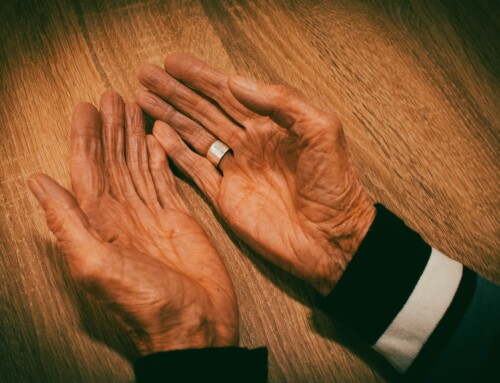As many senior citizens grow older, they may find it more difficult to perform specific tasks. The hardship may result from a health condition or a cognitive issue associated with dementia – or it could just be the natural course of aging. When essential life tasks (known as ADLs) are too difficult to accomplish, it can make living alone nearly impossible.
Activities of Daily Living, or ADLs, are the necessary skills and activities people need to care for themselves. An individual’s capability to complete ADLs indicates how likely it is that they can continue to live on their own. If a senior cannot accomplish ADLs, it may be time to consider an assisted living residence.
Six Categories of ADLs
- Ambulating: the ability to change positions or move to other locations (including in and out of a chair or bed) and to walk on their own.
- Feeding: the ability to feed oneself. Meal preparation is not considered a part of this category.
- Dressing: the ability to choose appropriate clothing and dress and undress oneself independently.
- Personal hygiene: the ability to take baths or showers and to groom oneself, including oral care, hair care, and nail care.
- Continence: the ability to control one’s bladder and bowel.
- Toileting: the ability to get to and use the toilet when needed and clean oneself.
While some people may need minimal help with these ADLs, others may need the task performed on their behalf. Living independently may not be a good option if that is the case.
Instrumental Activities of Daily Living (IADLs)
Instrumental Activities of Daily Living, or IADLs, are the required skills for living independently, though they might not be daily tasks. These activities require sharper skills than the above ADLS, such as logic and organization. IADL capability typically is lost before ADL proficiency is gone.
IADLs can assess how much help an elderly or disabled individual might require. They involve managing activities such as:
- Transportation: the ability to drive or arrange for other transportation.
- Shopping: the ability to shop for all items needed for everyday life.
- Managing finances: the ability to keep up with bills and manage financial assets.
- Meal preparation: the ability to purchase ingredients and prepare meals.
- Housecleaning and home maintenance: the ability to clean up after eating and maintain clean living areas.
- Managing communications: the ability to utilize phone technology and the internet.
- Managing medications: the ability to procure and take medictions properly per doctor instructions.
When IADLs become challenging, people often hire in-home care or consider assisted living as an option.
Why Should ADLs and IADLs Matter to Seniors and Their Families?
If someone is having trouble managing ADLs and IADLs, those challenges often indicate physical or cognitive health problems. Determining why a specific ADL is causing an issue is an effective way to diagnose and treat health issues early. But the most significant benefit of ADLS may be putting a spotlight on the functional difficulties of senior loved ones, so they can get the help they need.
If you are considering assisted living or memory care for your loved one, the facility administrator will likely conduct an assessment to determine the future resident’s current capabilities. This will allow the team to recommend and provide the best level of care for each person who lives with them.
A Banyan Residence is an assisted living and memory care facility located in The Villages. We are happy to help you to determine the best care for your loved one.








